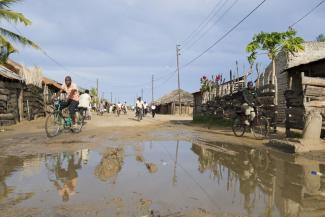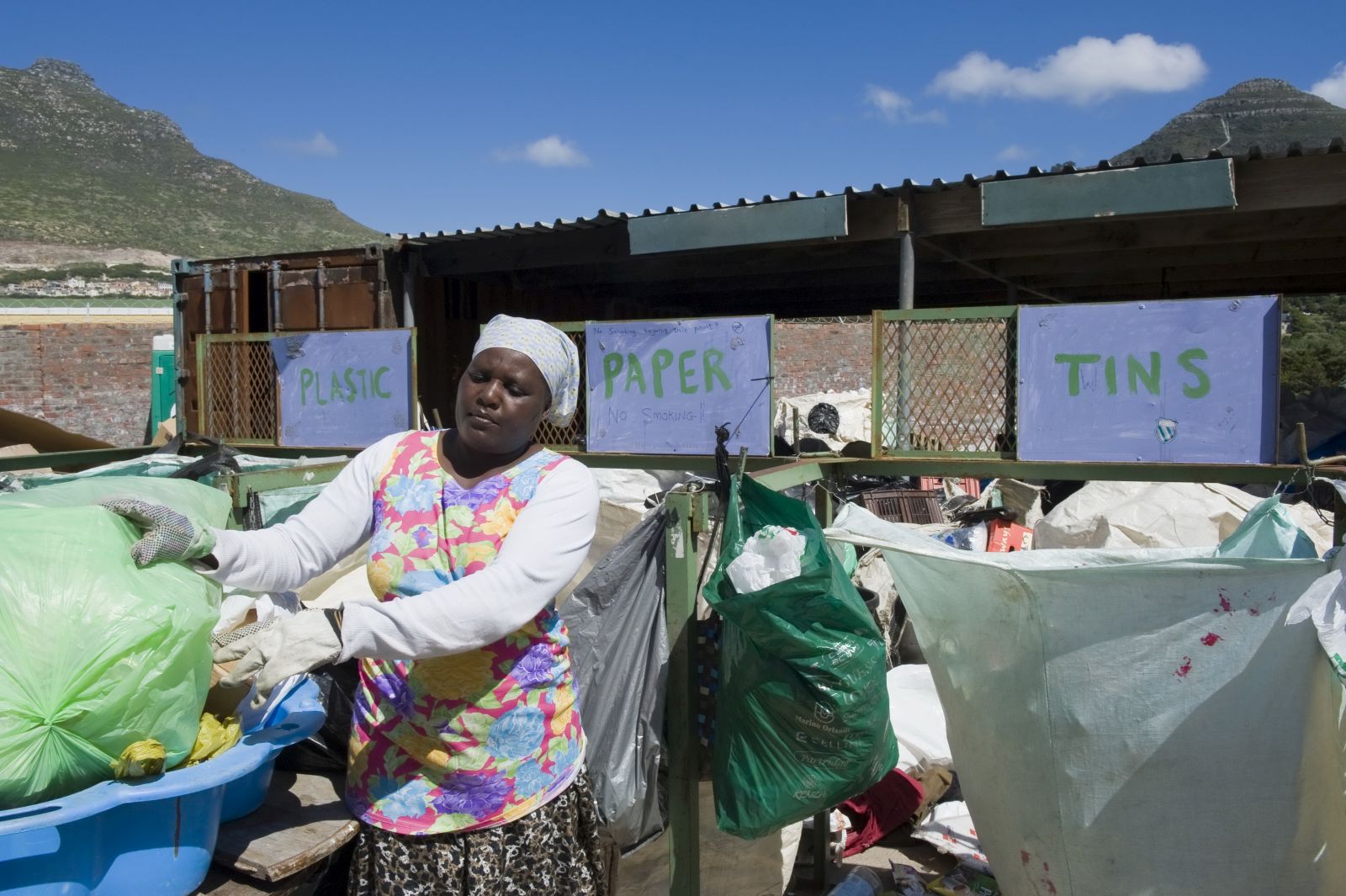Foreign trade
A matter of power and interest

Although Mozambique’s economy has registered high growth for years, the country’s development is stalled: poverty and income inequality are increasing, and the Human Development Index is still among the lowest worldwide (180th of 188). There is no improvement in sight because the economy also has a chronic foreign-trade deficit. This means that the country spends more on imports than it earns from exports and has so far failed to strengthen its export base. The annual deficits are financed by loans, development aid and inflowing foreign investment. In recent scandals, it also came to light that the government has been engaging in clandestine deals, some involving arms imports, and the state is massively indebted as a result. Major donors have responded by suspending aid flows, prices are rising, the currency is falling, investors are holding back, and living standards for many Mozambicans are worsening. The state needs to tighten its belt.
In principle, national economies can achieve welfare gains through foreign trade: countries that sell a lot of goods abroad generate income that can be invested in development. In Mozambique, however, exports remain weak (see box), and the little foreign trade income that is generated does not help reduce poverty. There are a number of reasons for this:
- Very few local exporters: Mozambique essentially lacks a networked economy, industrial clusters and a significant presence of small and medium-scale enterprises (SMEs). The absolute number of enterprises in the country is very low (Germany has 40 times more enterprises per capita), and there are very few large companies that could become major exporters.
- Limited integration of local enterprises in supply chains: minerals are mostly mined and exported by international companies. Very few SMEs are incorporated in the supply chain because they are either not available or not competitive. As a result, little employment and income is generated within the country.
- Little knowledge transfer: foreign trade offers the opportunity to bring international expertise into the country. Most of the Mozambican workforce are low-skilled, so knowledge transfer is urgently needed. But Mozambique tends to present obstacles to incoming foreign workers, for example through its labour laws. This slows down the development of a productive economy and export base.
- Wrong partners: Asian companies are increasingly moving into infrastructure projects, foreign trade and natural resources. They do not generally attach much importance to development support, international environmental and social standards, skill development and sustainability.
Poor track record of government and development policy
The Mozambican government has so far not been very successful at tackling the foreign trade deficit. It propagates import substitution – which is urgently needed in Mozambique’s consumer economy – but to little avail.
There is also no comprehensive foreign-trade strategy that addresses development issues. The government keeps drafting papers but there is no clear policy line. The same applies to industrial policy, the promotion of small businesses and agricultural strategy. They are not coordinated, they set out no priorities, and there is not enough money or resources available to implement them. What is more, individual ministries are often unable to take cross-sectoral measures.
In the meantime, there is at least a strategy in place specifically to promote exports: special Chinese-style economic zones are to be created (for example in the Nacala Corridor or Belulane Park near Maputo), offering good infrastructure and massive tax breaks for exporters. It remains to be seen how successful the special economic zones are.
For many years, international donors have also tried to support foreign trade, for example through initiatives such as Aid for Trade. They assist ministries, help with transport and logistics or promote tourism. But that support is mostly uncoordinated and rarely addresses root causes. Since new gas deposits were discovered, a number of organisations have offered vocational-training programmes for local businesses so that they can qualify as gas and oil production suppliers (for instance through the SOGA programme, in which GIZ is involved).
The European Partnership Agreement (EPA) has also just been signed, exempting nearly all exports to Europe from quotas and tariffs and creating incentives for European companies to establish export bases in Mozambique. But that does not necessarily mean anything: the European Union’s “Everything but Arms” initiative and the US “African Growth and Opportunity Act” both offered better export opportunities, but they were largely not used. The economic climate in the country first needs to be improved.
The first modest development successes could be seen in the sugarcane and tobacco industries in the last years. With donors’ and foreign investors’ capital help, “outgrower” programmes have been created to integrate small farmers into supply chains and thus help provide them with a better livelihood.
Options for action
Recent studies show that most poor countries are in a similar dilemma (Krause/Kaufmann 2011; Altenburg/Lütkenhorst 2015). They need intelligent foreign trade, industrial and development policies because market mechanisms alone are not enough. But that necessitates good governance, that is government interest in the common good as well as political and economic rules that do not serve a simple limited access order but help pave the way to an open access society. There are few signs of this in Mozambique; short-term individual profit interests prevail.
Systemic political and economic problems of this kind cannot be resolved by foreign-trade promotion alone, which is why even the extensive efforts of international donors have so far often come to naught. The environment can be influenced only slowly, from within and through civil-society engagement. Persistence, patience, realism and the readiness to work with what is available are key requirements. Success will not lie in patent remedies and one-size-fits-all models. “Islands of efficiency” need to be created in the existing landscape. Promoting collective action, for instance in “outgrower” communities, may be a step in that direction.
Friedrich Kaufmann heads the Southern African-German Chamber of Commerce and Industry (AHK) office in Maputo, Mozambique.
friedrich.kaufmann@gmx.net
Winfried Borowczak is a social economist and independent consultant specialising in private-sector and organisational development in Africa and Portuguese-speaking countries.
winborow@aol.com
References
Altenburg, T., Lütkenhorst, W., 2015: Industrial policy in developing countries – failing markets, weak states. London.
Krause, M., Kaufmann, F., 2011: Industrial policy in Mozambique. DIE discussion paper 10/2011, Bonn.











